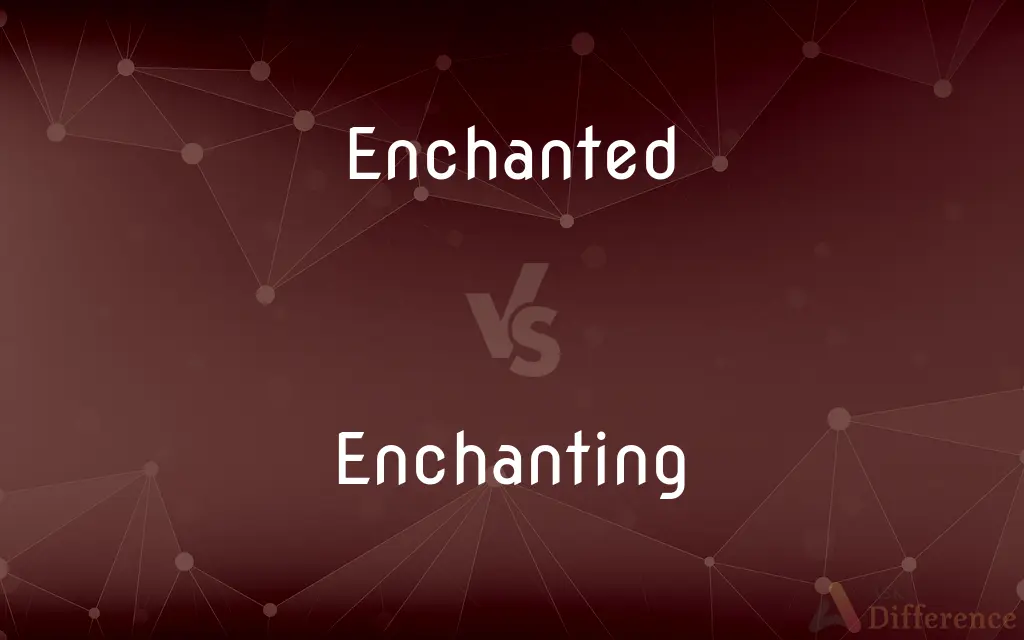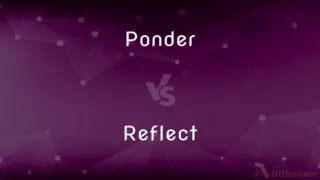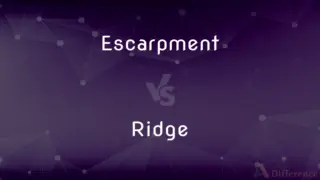Enchanted vs. Enchanting — What's the Difference?
Edited by Tayyaba Rehman — By Fiza Rafique — Updated on March 12, 2024
Enchanted describes something affected by magic, while enchanting refers to something that captivates or delights, often as if by magic.

Difference Between Enchanted and Enchanting
Table of Contents
ADVERTISEMENT
Key Differences
Enchanted typically means that something or someone has been under the influence of a spell or magic. This term is often used to describe objects, places, or beings within stories or tales that have had magic directly applied to them. Enchanting, on the other hand, describes the ability of something or someone to delight, fascinate, or attract in a seemingly magical manner, without implying any actual magic has been used.
The usage of enchanted is common in fairy tales and fantasy literature, where items or characters are literally transformed or influenced by magic. For example, an enchanted forest might be a place where magical creatures live, or an enchanted sword may have been given special powers through sorcery. Enchanting, conversely, is used to describe the allure or appeal of someone or something that makes it irresistibly attractive, such as an enchanting melody that captivates all who hear it.
Enchanted often carries a passive connotation, implying that the object or person has been acted upon by an external magical force. It suggests a state of being rather than an intrinsic quality. Enchanting, however, suggests an active quality or characteristic that has the power to attract, charm, or influence others positively. It is about emitting a charm that draws others in.
While enchanted might sometimes have a neutral or even negative connotation, depending on the context (such as being under a spell against one's will), enchanting is almost universally positive, highlighting the charismatic or delightful nature of something or someone. Enchanting can be used in everyday language to describe anything that is exceptionally pleasing or captivating, without any real implication of magic.
The difference between the two also highlights a distinction in perspective: being enchanted often refers to the experience or state of one being under a spell, while finding something enchanting is from the viewpoint of an observer who is captivated by the qualities of the other. Both terms, while related to the concept of magic, address different aspects of charm and attraction.
ADVERTISEMENT
Comparison Chart
Definition
Affected by or as if by magic; under a spell.
Capable of delighting, attracting, or charming in a seemingly magical manner.
Usage
Describes something that has undergone a magical transformation.
Describes the inherent quality of something that captivates or delights.
Connotation
Can be neutral or negative, indicating being under a spell.
Generally positive, highlighting charm or allure without negative effects.
Perspective
Implies a passive state of being acted upon by magic.
Implies an active quality that exerts an attractive or charming influence.
Examples
An enchanted mirror, an enchanted forest.
An enchanting melody, an enchanting view.
Compare with Definitions
Enchanted
Influenced or altered by magic, often involving a spell or enchantment.
The prince was turned into a frog by an enchanted curse.
Enchanting
Can refer to personalities or manners that are particularly captivating or charming.
His enchanting tales of adventure captivated the imaginations of all who listened.
Enchanted
Sometimes used to describe being captivated as if by magic, though less commonly.
He felt enchanted after hearing the siren's song, unable to resist its call.
Enchanting
Often used to describe the allure of nature, art, or beauty that feels magical.
The ballet's enchanting performance left the audience in awe.
Enchanted
Describes objects or beings within a magical context, having been given supernatural properties.
She found an enchanted locket that could make her invisible.
Enchanting
Reflects an active ability to influence or attract in a seemingly supernatural way.
The enchanting melody of the harp lulled the baby to sleep.
Enchanted
May also imply being under a spell that affects perception or behavior.
The enchanted audience applauded, as if under a spell, long after the performance ended.
Enchanting
Having the quality of charming or captivating others in a delightful manner, as if by magic.
Her enchanting smile won over everyone she met.
Enchanted
Can refer to a place or situation imbued with magic, often hidden or mysterious.
They stumbled upon an enchanted garden where time stood still.
Enchanting
Describes something that has an irresistible appeal or attraction.
The view from the mountaintop was absolutely enchanting.
Enchanted
To cast a spell over; bewitch.
Enchanting
Having the power to enchant; charming
Enchanting music.
Enchanted
To attract and delight; entrance.
Enchanting
Having the ability to enchant; charming, delightful.
Enchanted
Simple past tense and past participle of enchant
Enchanting
An act of enchantment.
Enchanted
Charmed, delighted, enraptured.
Enchanting
Having a power of enchantment; charming; fascinating.
Enchanted
Under the influence of enchantment.
Enchanting
Capturing interest as if by a spell;
Bewitching smile
Roosevelt was a captivating speaker
Enchanting music
An enthralling book
Antique papers of entrancing design
A fascinating woman
Enchanted
(dated) A greeting used when introduced to someone for the first time, especially by a man when introduced to a woman.
Enchanted
Under the power of enchantment; possessed or exercised by enchanters; as, an enchanted castle.
Enchanted
Influenced as by charms or incantations
Common Curiosities
What does it mean to be enchanted?
Being enchanted means to be under the influence of magic or to have undergone a magical transformation.
How does the context change the use of enchanted and enchanting?
The context can shift "enchanted" from a literal magical influence to metaphorically being captivated, while "enchanting" remains focused on the captivating qualities themselves.
Are enchanted places real?
While places described as enchanted in stories involve magic, in reality, the term might be used metaphorically to describe places of exceptional beauty or mystery.
Can a person be enchanting?
Yes, a person can be described as enchanting when they possess qualities that are irresistibly charming or attractive.
Is enchanted always a positive term?
Not necessarily; while enchanted can describe wondrous magical effects, it can also imply being under a spell unwillingly.
How can something be described as enchanting?
Something is described as enchanting when it has a captivating, charming, or delightful quality that seems almost magical.
What makes an enchanting experience?
An enchanting experience is one that deeply captivates or delights, often leaving a lasting impression of wonder or charm.
What is the origin of the feeling of being enchanted?
The feeling of being enchanted often comes from experiencing something that profoundly affects one emotionally, similar to the effects of a spell.
Can inanimate objects be enchanting?
Yes, inanimate objects such as art, music, or landscapes can be described as enchanting based on their beauty or the feelings they evoke.
How do you recognize something as enchanting?
Something is recognized as enchanting by its ability to captivate one's senses, evoke wonder, or inspire a sense of beauty and delight.
Can "enchanted" and "enchanting" be used interchangeably?
While related, they're not interchangeable. "Enchanted" refers to being under a spell, while "enchanting" describes the ability to captivate.
What is the significance of enchantment in folklore and fairy tales?
Enchantment in folklore and fairy tales often serves as a plot device, symbolizing transformation, challenges, or the supernatural.
How do enchanting qualities affect others?
Enchanting qualities attract, charm, and captivate others, often leaving a memorable and positive impression.
Share Your Discovery

Previous Comparison
Ponder vs. Reflect
Next Comparison
Escarpment vs. RidgeAuthor Spotlight
Written by
Fiza RafiqueFiza Rafique is a skilled content writer at AskDifference.com, where she meticulously refines and enhances written pieces. Drawing from her vast editorial expertise, Fiza ensures clarity, accuracy, and precision in every article. Passionate about language, she continually seeks to elevate the quality of content for readers worldwide.
Edited by
Tayyaba RehmanTayyaba Rehman is a distinguished writer, currently serving as a primary contributor to askdifference.com. As a researcher in semantics and etymology, Tayyaba's passion for the complexity of languages and their distinctions has found a perfect home on the platform. Tayyaba delves into the intricacies of language, distinguishing between commonly confused words and phrases, thereby providing clarity for readers worldwide.
















































